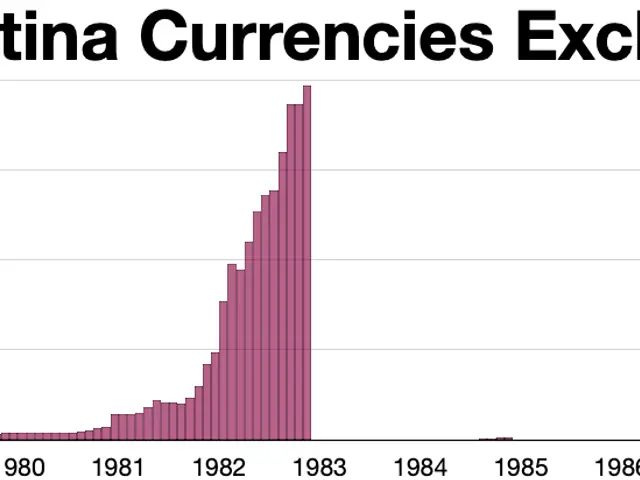Title: Union Financial Apologizes for ZBI Immo Wohnen Fund's Crash: Unraveling the Real Estate Meltdown
Hey all! Let's dive into the latest drama surrounding Union Financial's ZBI Immo Wohnen fund.
The collapse of the ZBI Immo Wohnen fund, managed by Union Investment, has left investors in a panic. Union Investment plans to recover losses faced by the fund by 2026, stating that residential property investments aren't a mistake. But when it comes to DZ Bank, things aren't so optimistic. Cornelius Riese, CEO of DZ Bank, claims the fund is "the right fund at the wrong time." Union Investment reduced the fund's value by 16.7 percent in June, likely due to overpaying for residential real estate.
But why did this real estate catastrophe happen? Fund managers bought properties like hotcakes from 2018 to 2022, just as prices were skyrocketing. An unexpected surge in interest rates caught them off guard, alongside a disheartening 7% vacancy rate for properties in less popular areas and on the older side.
Apologizing for the fund's devaluation, Union Investment CEO Hans Joachim Reinke pointed out rapid increases in interest rates and the highest inflation since 1949 as the primary reasons for the massive loss in value, with "no operational issues."
Union Investment remains profitable overall, with a net asset value of around 500 billion euros and earnings of 616 million euros in the first half of the year. However, the collapse of the ZBI fund raises concerns about the financial health of the cooperative banking sector, with issues like Baywa's precarious financial situation and VR-Bank Bad Salzungen-Schmalkalden's questionable loans making headlines.
As investors pull out of the fund, Union Investment must sell properties or find new investors to raise liquidity. Regulations, implemented to prevent another global financial crisis, require investors to wait a year to reclaim their money.
The ZBI fund isn't alone in feeling the heat. Economic downturns, poor management practices, changes in regulations, and negative market sentiment can all bring down real estate investment funds and prolong their recovery periods. Strategy adjustments, financial restructuring, and regaining investor trust are vital for these funds' survival.
Stay tuned for updates on the real estate market and our financial institutions. It's essential to stay informed!
Further Reading:
- Impact of sudden changes in interest rates on real estate markets
- Effects of over-valuation in property investments
- Role of leverage in amplifying returns and increasing risk
- Managing operational risks in real estate investment funds
- Regulatory compliance and its significance in preventing fund failures
- Addressing liquidity problems in real estate investment funds
- Strategies for reviving investor confidence in troubled funds
Enrichment Data Integration: - Poor market valuation: Investing in properties that were overvalued at the time of purchase can lead to significant losses when the market experiences a correction. - Excessive leverage: Using excessive leverage to amplify returns can expose funds to higher risks. - Operational risks: Inadequate risk assessment, poor management practices, or inefficient asset management can contribute to fund failures. - Regulatory issues: Non-compliance with regulatory requirements or changes in regulations can impact a fund's performance and viability. - Liquidity issues: Addressing liquidity problems is crucial for your fund to meet investor redemptions, maintain credibility, and avoid a crisis of confidence. - Regaining investor confidence: Transparent communication, effective risk management, and a clear plan for recovery are essential for regaining investor trust. - Asset disposal challenges: Selling off assets during a market downturn can be difficult and add to the recovery period. - Rehabilitation costs: Funds with properties requiring significant rehabilitation may face added costs, extending the recovery process. - Rebuilding trust: Restoring trust with investors, lenders, and stakeholders takes time but is necessary for a fund to recover successfully. - Compliance with recovery plans: Ensuring stakeholders are aligned with the recovery plan and that it's implemented effectively is crucial for avoiding further setbacks.





![The image shows a formalin/PFA-fixed paraffin-embedded section of an anti-pfa1 antibody [epr22828]...](/en/content/images/size/w640/format/webp/20260226200441_csic-monoclonal-antibody-neutralizes.jpeg)


